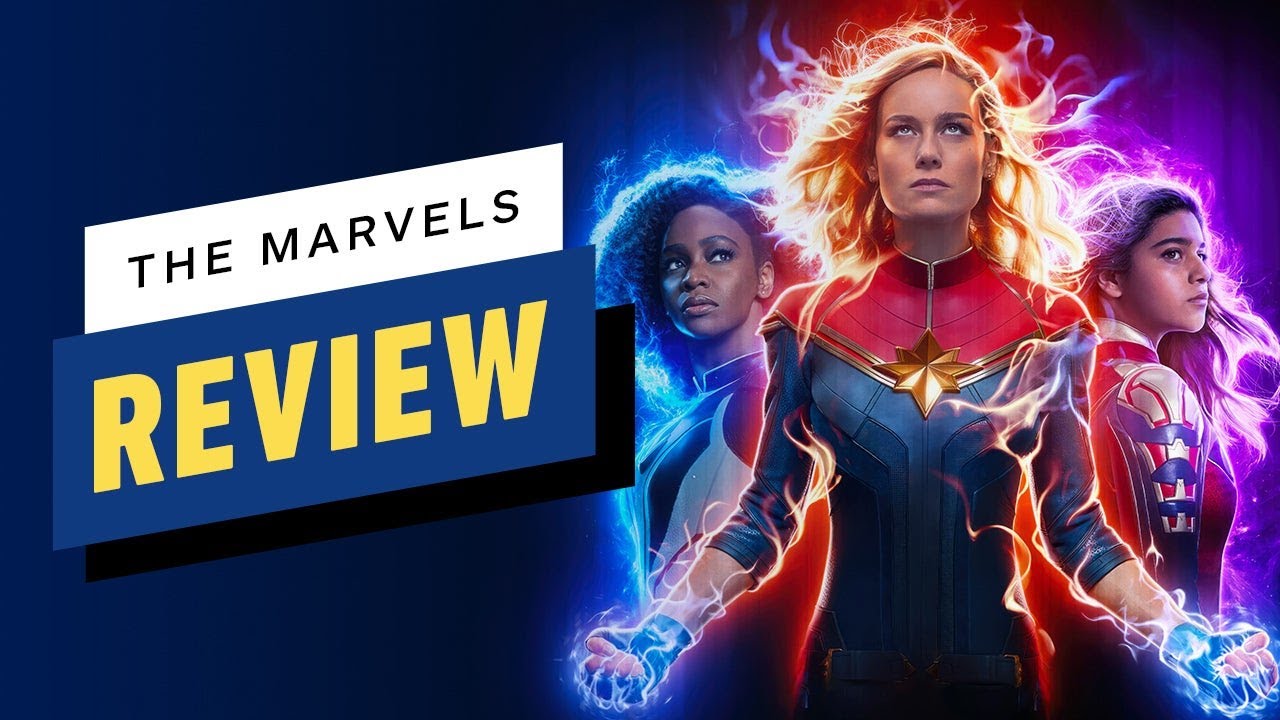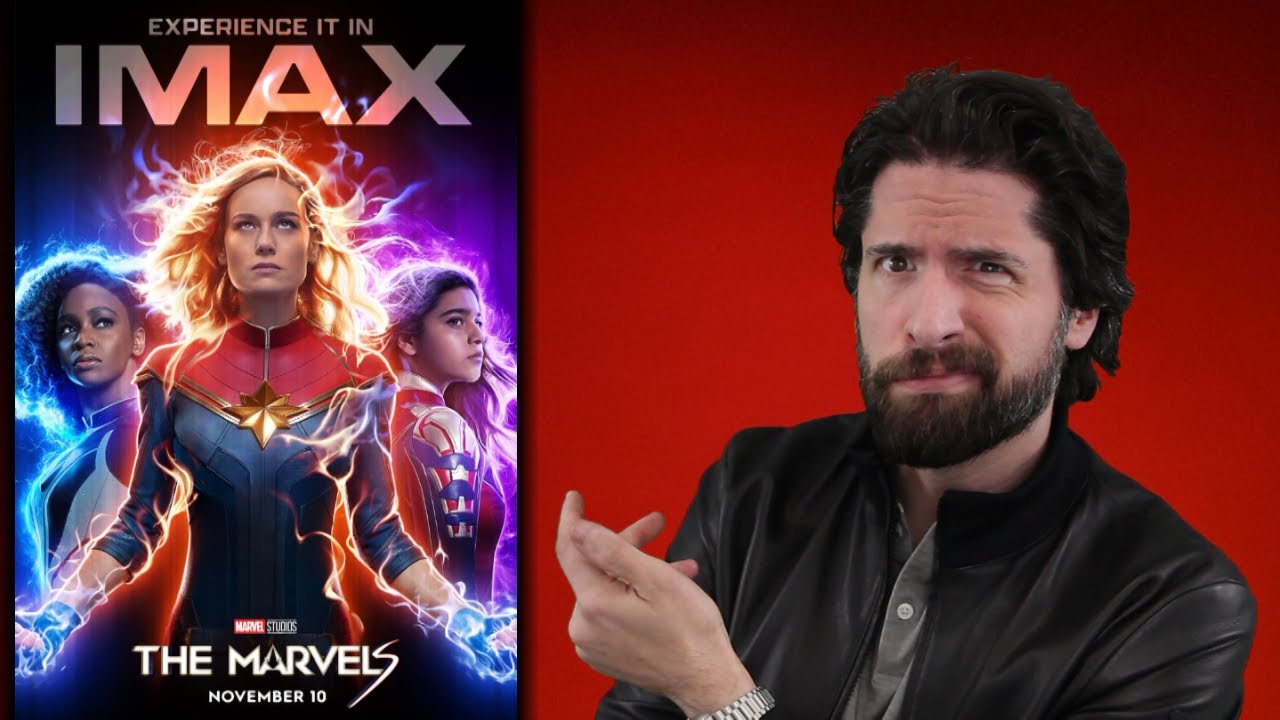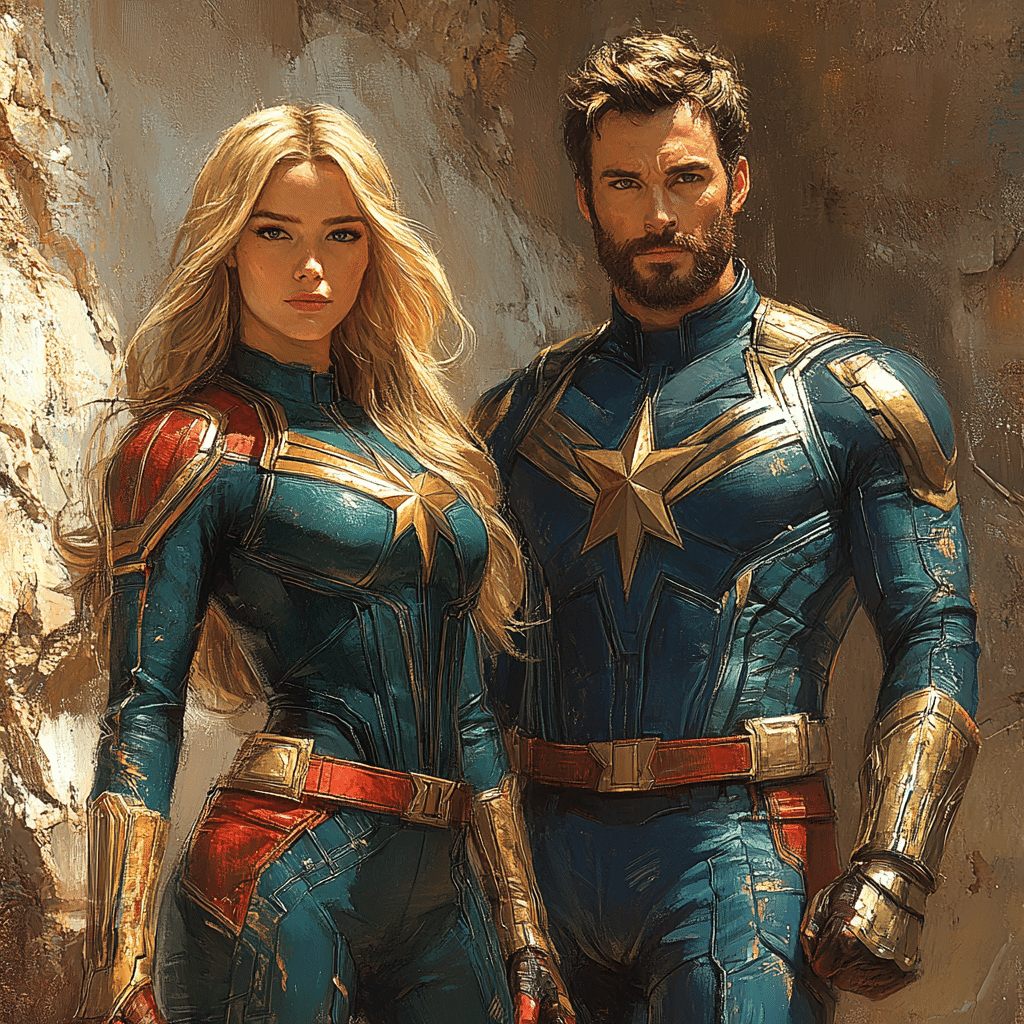
The recent buzz surrounding The Marvels reveals a precarious tale of critical reception and financial performance that’s got cinephiles and industry insiders buzzing. Unfortunately for Marvel lovers, the film has hit an unprecedented low in box office trends since its release. The Marvels is the only installment in the Marvel Cinematic Universe (MCU) that failed to cross the $100 million mark in the United States and holds the title for the lowest opening weekend of any MCU film. Reviews for The Marvels have highlighted both the film’s entertainment value and its critical shortcomings, making the analysis of The Marvels reviews vital for understanding where the superhero genre is currently headed.
1. The Marvels Review Trends: A Deep Dive into Critiques and Box Office Performance
Critics seem to have a mixed bag when it comes to The Marvels. Let’s dive into seven key trends that have emerged from The Marvels reviews, reflecting both the film’s strengths and its drawbacks.
Critics are tuning into the film’s tangled plot, finding it to be a notable disadvantage. Publications like The Hollywood Reporter and Empire have pointed out that the narrative lacks the coherence typical in successful Marvel franchises. The various interwoven stories left many viewers scratching their heads. They simply couldn’t follow along, which undoubtedly tarnished the overall engagement and tempted fewer audiences to return for repeat viewings.
Despite some exciting character introductions—like Ms. Marvel, a spunky role played by Iman Vellani—many reviews indicate that character depth fell short. Critics from Collider and Screen Rant felt that the emotional core of the story was sacrificed for flashy visuals and high-octane action. This left audiences disconnected and wanting more depth from characters who could have added heart to the story.
While The Marvels dazzles with impressive visual effects, it struggles to maintain strong storytelling. Critics on platforms like IndieWire lauded the aesthetic but lamented the lack of substance necessary for a memorable experience. This disconnect has often resulted in mixed audience ratings on Rotten Tomatoes, leaving people torn between enjoying the experience visually or narratively.
As Marvel continues to fill theaters with content, signs of franchise fatigue are becoming impossible to ignore. With numerous releases flooding the market, Variety notes the repetitive formulas that once thrilled audiences no longer hold as much sway. This has led to decreasing expectations for box office performance, as seasoned viewers are seeking something different.
It appears that The Marvels targets die-hard MCU fans more than anyone else. Reviews from The Wrap suggest that newcomers, unfamiliar with the broader universe, are finding it hard to relate. This narrow audience scope may be a contributing factor to the film’s lackluster ticket sales.
A successful marketing campaign is key to any blockbuster’s performance, but The Marvels seemed to hit a snag there. Insiders from Box Office Mojo reported that the film’s promotional strategy lacked the pizzazz usually associated with Marvel’s previous outings. This failure to generate pre-release excitement contributed to underwhelming opening weekend numbers.
Some critics expressed appreciation for the film’s attempt at addressing social themes like identity and inclusion. However, others argued these elements needed to harmonize better with the film’s entertainment aspect. Reviewers from Vulture noted that many audience members turn to superhero films for escapism—a disconnect that likely played a role in dampened audience reactions.
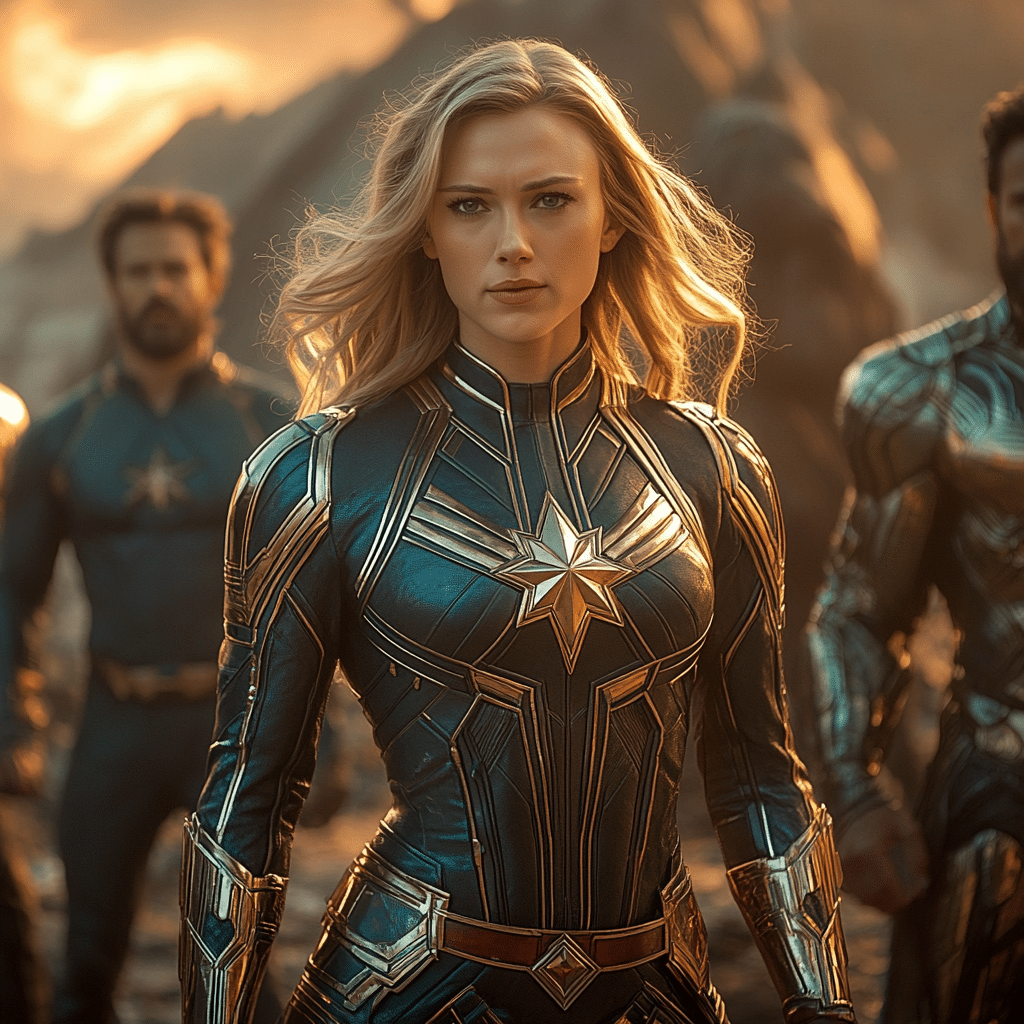
2. The Impacts of Critiques on Box Office Sales
The reception of The Marvels has not only led to its critical standing but also dramatically impacted its box office success. Opening weekend estimates revealed a revenue drop that alarmed industry experts, with projections falling significantly short of initial expectations. By analyzing box office data from Deadline, we see clear correlations between the critiques voiced and the revenue figures.
The staggering realization is that The Marvels became a significant talking point about the ongoing relevance of superhero films in cinema. Despite opening to much fanfare, the flimsy narrative and character missteps saw ticket sales dwindle swiftly. This trajectory raises questions about the genre’s ability to keep audiences enchanted amid swelling fatigue over repeated tropes. It seems that audiences are now more demanding, prompting a reevaluation of the superhero genre’s road ahead.
Box office analysts suggest that unless Marvel rethinks its storytelling approach, we may be observing the beginning of a more uncomfortable phase for the franchise. The figures speak for themselves: a single movie cannot solely rely on its franchise status without fully engaging its audience.
3. A Shift in Audience Sentiment: The Evolution of Comic Book Films
The Marvels’ bewildering reviews point to an urgent evolution in audience expectations regarding comic book adaptations. Earlier Marvel films enjoyed unbroken box office records, captivating viewers and captivating their imaginations. Lately, however, audiences seem to respond to more intricate narratives and multi-dimensional characters.
This shift in sentiment indicates that filmmakers are going to have some heavy lifting to do in the future. No longer can studios just bank on star power and explosions; quality storytelling holds the keys to continued success. Audiences are now more discerning, looking beyond explosive visuals to immersive tales that resonate and connect on an emotional level.
To thrive in this new landscape, filmmakers must embrace innovation while staying true to the dynamic essence of superhero stories. Engaging narratives must take precedence over merely filling seat space with action and spectacle.
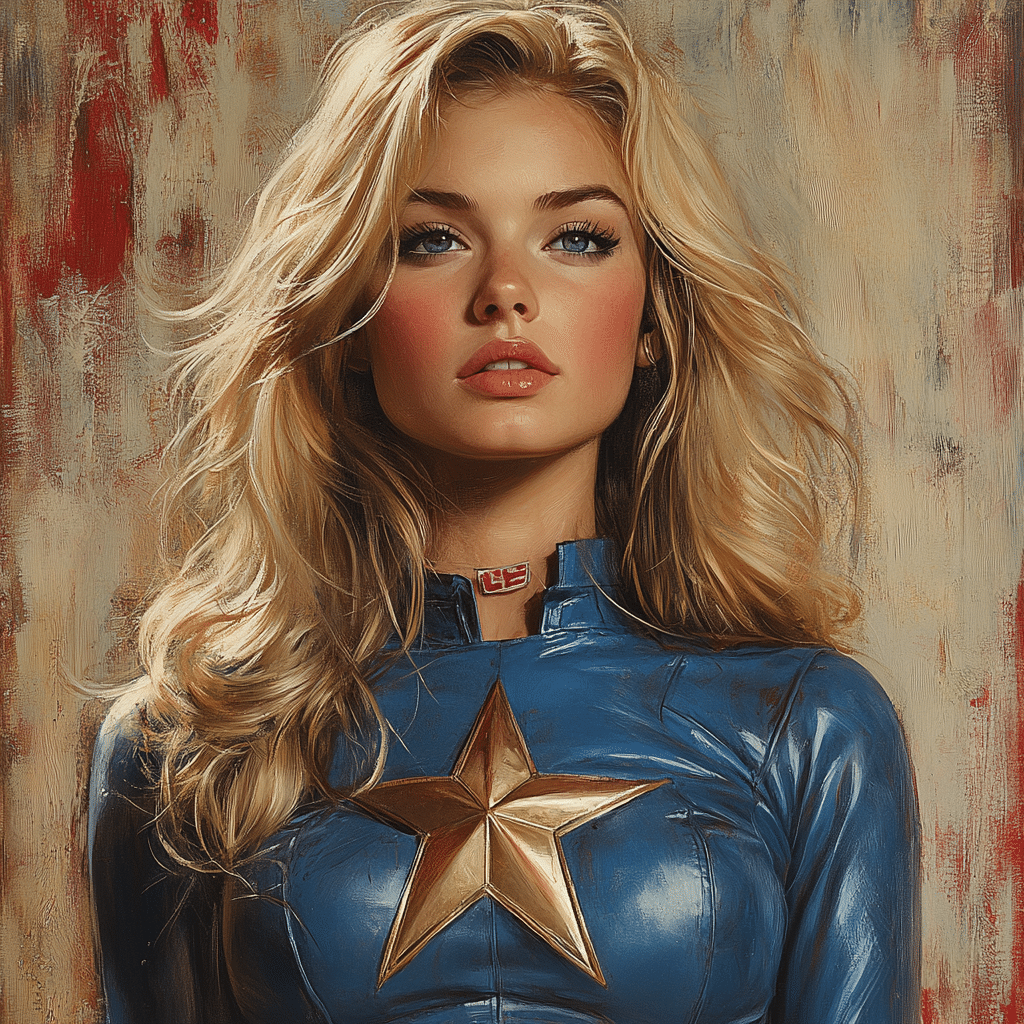
4. Innovative Strategies for Future Marvel Releases
In light of its lukewarm reception, Marvel Studios faces a crucial crossroads. They need to craft fresh strategies to capture attention in their future releases. First and foremost, reemphasizing strong storytelling that draws audiences in will be vital. Character depth and nuances that make spectators care about who they’re watching can breathe life into a franchise at risk of fading.
Potential new avenues could include focusing on smaller, character-driven stories, which stand a greater chance of resonating with diverse audience segments. By refining marketing techniques to highlight these new narratives, the franchise might win back those who’ve become disenchanted.
Ultimately, the path forward for The Marvels serves as a larger lesson about the evolving landscape of superhero cinema. As audiences’ tastes change, the filmmakers must adapt, ensuring that captivating narratives and relatable characters take center stage. The film’s reception has made it clear: sustaining a franchise means keeping a keen eye on what viewers truly crave.
In sum, the trajectory of The Marvels displays pressing concerns for both the Marvel franchise and the superhero genre as a whole. By incorporating innovative techniques for storytelling, character depth, and engaging marketing strategies, Marvel can usher in a renaissance for its cinematic universe while reinvigorating the audience experience they’ve long cherished.
As the tides of audience expectation shift, one question lingers—can the MCU rise to the occasion, or will it find itself just another faded hero in cinema’s hall of fame?
The Marvels Reviews: Facts & Fun Trivia
While “The Marvels” has faced some significant box office challenges, this film is rich with the kind of quirky trivia that draws in curious viewers. Did you know that Bobbe J. Thompson, who plays a funny yet pivotal role, has a unique knack for combining comedy with depth? Fans may recognize him from various roles, but it’s his performance here that adds a delightful twist to an otherwise critical landscape of reviews. It’s always interesting to watch how budding actors find their way onto the big screen, often pulling from a treasure trove of past experiences, much like how stories unfold in The Curious case Of Natalia grace episodes.
Speaking of layers, “The Marvels” also dives into some intriguing themes that reflect current societal dynamics, somewhat like the quirks and cultural references in Fundie Baby voice. What sets this film apart from others in the franchise could very well be its attempt to resonate with younger audiences while tackling serious subjects with a dose of humor. The blend of laughter and drama feels a bit like a refreshing take on the classic Family Man movie, where comic moments emerge at unexpected times, keeping viewers engaged.
To add to the trivia, the film’s production took place in diverse locations, contributing to its visual appeal. For example, scenes resembling the chaos of the San Diego storm provide a backdrop that’s both intense and relatable. Such settings ground the story, offering viewers a peek into the larger conversations about everyday life intermingled with superhuman adventures. It seems that, despite the challenging reviews that “The Marvels” has garnered, there’s still a treasure trove of fascination and conversation waiting to be explored through trivia and behind-the-scenes gems, making it a conversation starter for fans everywhere.
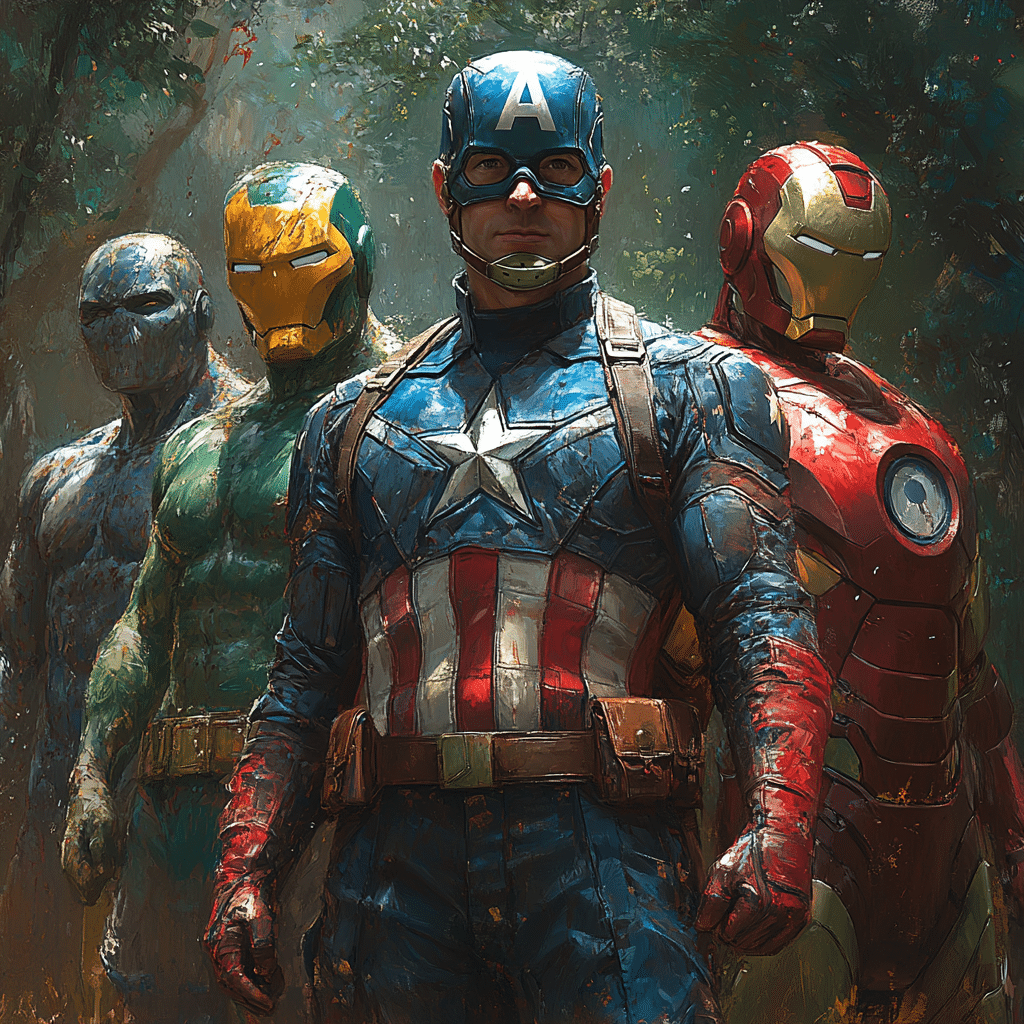
Is The Marvels a hit or flop?
The Marvels is considered a flop, being the only MCU movie that didn’t hit $100 million in the US and having the lowest opening weekend of all MCU films.
Was The Marvels movie good?
The Marvels has its charms, with funny moments and great chemistry among its leads. Most folks found it easy to enjoy, even with a messy plot and some offbeat tone shifts.
Is the new Marvel movie any good?
Yeah, the new Marvel movie has its fun parts. It’s a breezy watch and skips the heavy themes of other recent superhero flicks, making it entertaining despite its flaws.
What is the rating of The Marvels?
The rating for The Marvels isn’t consistent, but a lot of recent reviews seem to suggest it lands somewhere around a “Fresh” score, celebrating its energy but criticizing its plot.
Why did The Marvels do poorly?
The poor performance can be pinned on a mix of factors like competition from other films, lack of substantial marketing, and perhaps audience fatigue with the franchise.
Why did no one like The Marvels?
Some audiences just didn’t connect with The Marvels, pointing to its cluttered story and tonal inconsistencies as reasons why it didn’t resonate as well as previous entries.
What are people saying about The Marvels movie?
People are saying The Marvels is a fun ride with well-played characters but suffers from a jumbled narrative that leaves some feeling unsatisfied despite the lighthearted vibe.
Who played Beast in The Marvels?
Beast in The Marvels is played by the talented actor who’s reprising the role from previous X-Men films, bringing continuity to the character within the Marvel universe.
Why is Beast in The Marvels?
Beast appears in The Marvels as part of the broader Marvel cinematic landscape, intended to tie in storylines and perhaps tease future crossovers with the X-Men.
Did The Marvels lose money?
Yep, The Marvels did lose money, largely due to its low box office performance compared to expectations set by other MCU entries.
Who is the bad guy in the new Marvels movie?
The main villain in The Marvels is Dar-Benn, portrayed by Zawe Ashton, who brings a unique antagonistic force to the story.
What is the bad language in The Marvels?
The bad language in The Marvels is mild, featuring a handful of swears that fit the film’s casual and humorous tone, though it’s not overly harsh.
Is The Marvels movie worth watching?
If you’re looking for a light, entertaining film and don’t mind some bumps in the road, The Marvels is worth a watch, especially for MCU fans.
What is the only R-rated Marvel movie?
The only R-rated Marvel movie is Deadpool, known for its raunchy humor and mature content, which sets it apart from typically more family-friendly superhero offerings.
Why was The Marvels good?
The Marvels shines thanks to its humor, lively pacing, and the strong chemistry between its three leads, making it a fun experience despite its narrative hiccups.





